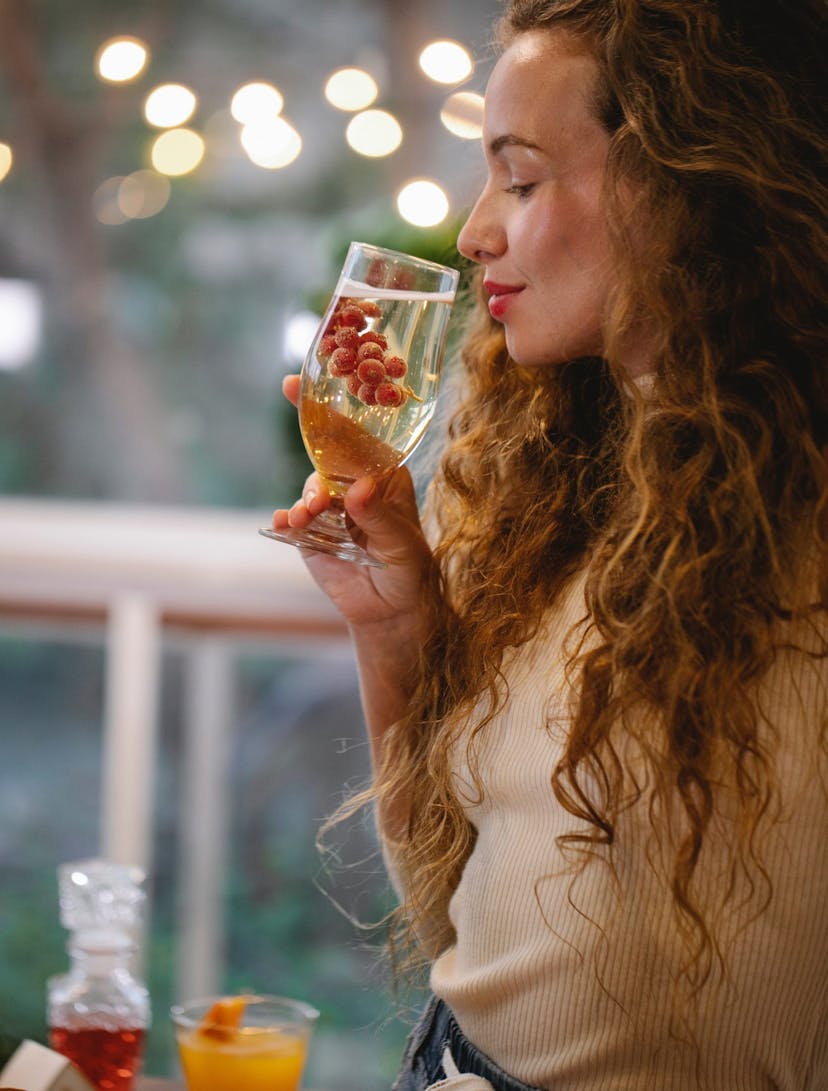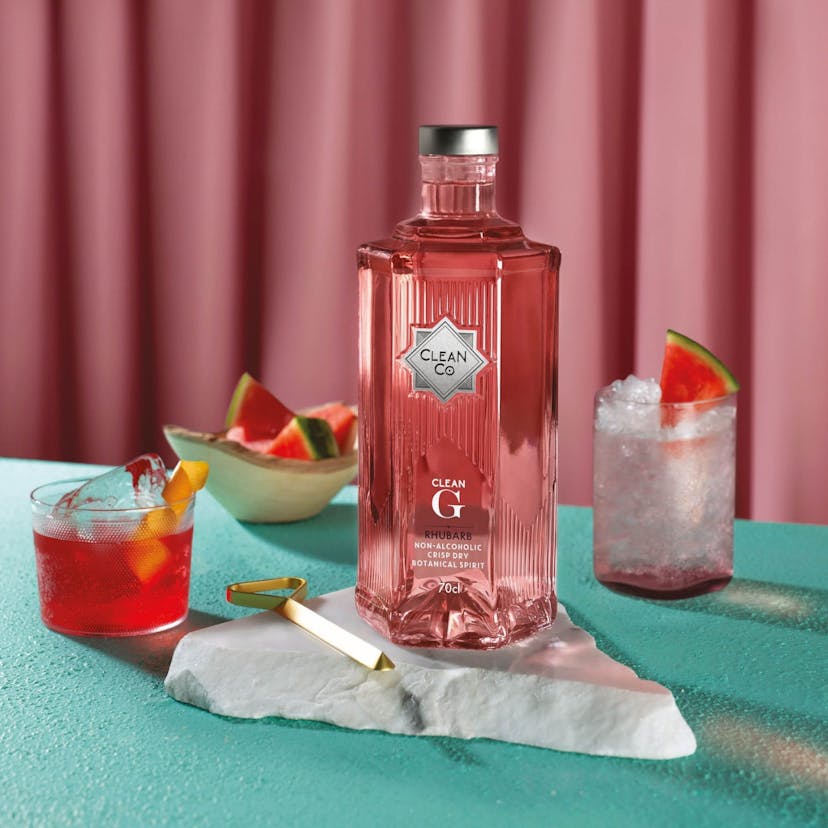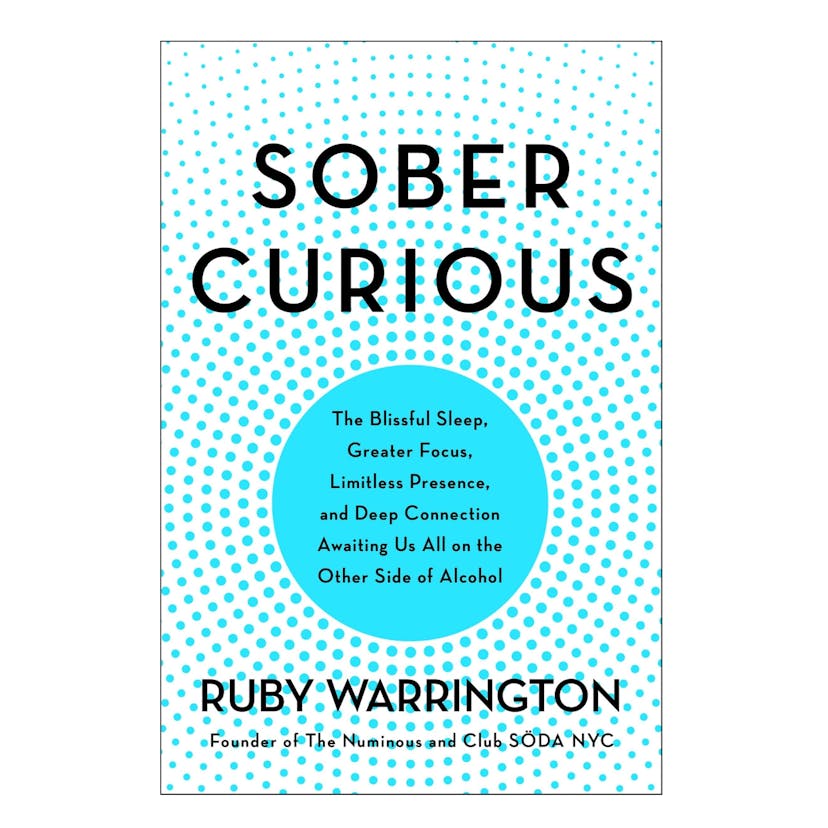Are You Sober Curious?
9 minutes read
Are you guilty of drinking too much on a night out? Or have a habit of drinking wine to beat social anxiety or using it as a crutch in certain situations? Or, on the flip side, to help aid sleep? If you’re fed up waking up to morning fuzziness or beginning to question how alcohol affects your mood, you’re sober curious.
A growing number of people are becoming sober curious, with the trend growing amongst the millennials, with 56% considering themselves to be ‘mindful’ drinkers compared to 37% of baby boomers, according to a report. The sober curious people have grown from 12% in 2020 to 19% today.
If you’re wondering about all the positives of life not dependent on alcohol, a sober curious lifestyle might be for you. A flexitarian approach could be the success story you need.
Beauty Daily reached out to two leading medical experts to understand what it means to be sober curious, and how to make this change have a positive and permanent impact on your life.

What is Sober Curious Movement?
Month-long sobriety challenges like Dry January or Sober Spring are not new and have widely encouraged millions worldwide to abstain from alcohol for a month and beyond. However, the sober curious movement is more inclusive, welcoming individuals who aren’t willing, ready or planning to give up alcohol altogether.
It’s for people who have not yet been diagnosed with a severe drinking problem but are curious about the role alcohol plays in their lives and drinking more mindfully. The sober curious movement recognises that and helps to break the stigma that has long been associated with sobriety.
What does it mean to sober curious?
“Being sober curious means questioning everything about your relationship with alcohol. It means becoming curious about what it means to live sober, both the benefits and the challenges. The only way you can practically realise the benefits is to have a sustained period of not drinking alcohol,” says Dr Craig Beach, psychiatrist and founder and CEO of Open Mind Health.
You can start a sober curious lifestyle by reducing the amount of alcohol you consume to abstaining from drinking it altogether. It could also mean exploring and finding alternative drinks of choice with a non-alcoholic or low-alcoholic substitute that mimics the real thing, such as mocktails.
7 signs joining the sober curious movement might help you
We toast life’s greatest celebrations with champagne, cocktails, beers and wine. Although alcohol may not be a dangerous problem for all, it can still be a problem if it becomes uncontrollable.
“Excessive drinking can create many problems in every area of life, including your physical health, mental health, social life, work life, and overall well-being. Make a list of the ways drinking has negatively impacted your life. Reflect on this list when you feel the urge to drink. If you’re not experiencing negative health effects, it’s good to proactively learn what could happen if you keep drinking excessively,” Dr Beach advises.
Dr Beach shared seven signs a person may be exhibiting a drinking problem.
- Regularly consuming more than the recommended amounts in national guidelines. The general guidelines from the NHS are to drink no more than 14 units of alcohol per week, spread across three days or more.
- Feeling like you should minimise your alcohol intake.
- Being criticised by others for drinking or having friends and family expressing concern about your alcohol drinking habits.
- Your drinking causes you to feel bad or guilty.
- Feeling like you need to drink first thing in the morning, put to sleep or that you need to drink to get through the day.
- Binge drinking or heavy alcohol use.
- Feeling like alcohol is starting to affect your work or home life or is adversely affecting your physical or emotional well-being.
5 benefits of being sober curious
1. Youthful skin
If you’re someone who does your skincare routine religiously and spends lavishly on your double serum and moisturiser, being sober curious can significantly contribute to achieving your desired gorgeous, glowing complexion, along with a less puffy and wrinkly face.
“Cutting back on alcohol can improve the appearance of the skin by reducing inflammation and improving hydration which can result in more radiant and youthful-looking skin,” says Emilia Herting, a traditional Chinese medicine practitioner and Escapada co-founder.
A clinical study revealed that heavy alcohol use (meaning eight or more drinks a week) could lead to increased upper facial lines, under-eye puffiness, oral commissures (lines around your mouth), midface volume loss, and blood vessels (or those small red veins you might notice on your face).
“When you quit drinking, some of these effects may be reversed, and you may notice your face beginning to look healthier,” says Dr Beach.
Read next: Does Alcohol Age Your Skin? The Experts Weigh In
2. Improved physical and mental health
“Reducing your alcohol consumption can lower your risk of developing serious health conditions such as liver disease, certain cancers, and heart disease,” Herting explains. In addition, reducing your alcohol intake can increase your life expectancy and improve the quality of your life, according to a 2018 Lancet report.
Drinking alcohol is linked to various mental health issues, such as depression and anxiety. However, experts say that reducing or stopping drinking altogether can improve mood.
3. Healthier liver
By being sober curious, you’re allowing your liver to recover. If you overload your liver with alcohol, it can become sluggish and less efficient.
“The liver is the primary organ responsible for metabolising alcohol, and heavy drinking can cause the liver to become inflamed and scarred, and alcohol-related liver conditions like fatty liver disease and worse alcoholic hepatitis can arise,” says Herting.
4. Undisrupted sleep
Reducing your alcohol consumption or abstaining from it altogether can reward you with a night of more restful sleep. While some people may find a glass of wine lulls them to sleep, it outweighs the negative effect on sleep quality through the night.
This explains why you still feel exhausted even if you’ve had nine hours of sleep after a night out. Medical experts say alcohol does allow healthy people to fall asleep quicker and sleep more deeply for a while, but it reduces rapid eye movement (REM) sleep. REM sleep is the stage of sleep when people dream, and it’s thought to be restorative.
When you choose to drink, you skip having REM sleep.
Read next: Sleep Experts Share Adult Night Routine Tips For A Good Slumber
5. You foster better relationships with everyone
Ever noticed you have less control over your emotions when you drink? Shyness has left the room. You find yourself more outgoing and carefree, but at the same time, it’s easy to burst into anger or become too emotional. This is because alcohol impairs cognitive function, making it more of a challenge to problem-solve and control anger.
“Whether you realise it or not, your drinking affects your relationships; you may have more frequent arguments or strain with your children, partner, and friends. By deciding not to drink (or reducing it), you take the first steps toward improving your relationships.
Remember that this might not happen immediately or spontaneously, and you might need the extra support of family or couples counselling to help repair the damage caused by drinking,” says Dr Beach.

7 Expert-approved tips for adopting a sober curious lifestyle
1. Try non-alcoholic drinks
“There are many non-alcoholic beverages that can be enjoyable and satisfying. The key is to experiment and find non-alcoholic drinks that you enjoy and that help to satisfy your cravings, such as sparkling water with fresh fruit or herbs for flavour, unsweetened herbal teas (hot or cold), kombucha, virgin cocktails, smoothies or non-alcoholic beer or wine,” recommends Herting.

Try: Clean Co’s Rhubarb Non-Alcoholic Gin Alternative, £19. It’s like Rhubarb Gin but without the alcohol and guilt. It has the classic flavours of juniper and citrus, with punchy rhubarb and undertones of coriander, mint and cinnamon. Enjoy!
2. Create a plan before you drink and set a budget
Dr Beach recommends: “If you decide to drink, it can be helpful to decide how much you want to drink in advance so that you know when it’s time to stop,”
It also helps to set a ‘booze budget’. “Decide that you’re only going to spend a certain amount of money on alcohol. This can be a specific, set amount per week or drinking occasion,” Dr Beach says.
3. Set ‘dry’ days
Schedule a few alcohol-free days each week in your diary, and try not to drink on consecutive days. This could be a great opportunity to do something that doesn’t involve drinking. It could be a shopping or spa day. You decide just as long as it diverts your mind from drinking.
Get some inspo here 10 Ways To Indulge In Self Care This Weekend
4. Fill your pantry with goodies
“Stock your fridge and pantry with non-alcoholic beverages and snacks that you enjoy so that you have alternatives when you’re tempted to have a glass of wine,” says Herting.
Some great healthy and hearty snack recipes here: Nutritionist-Approved Guide To Clean Eating
5. Be aware of things that might trigger you to drink
Reducing the amount of alcohol you consume or deciding to abstain from it altogether is not a walk in the park. It takes a lot of commitment, and it’s challenging. It might be helpful to be mindful of what triggers you to drink.
Dr Beach suggests “Practicing HALT.”
“This stands for Hungry, Angry, Lonely, and Tired. These are often triggering emotions that can make you feel like drinking. When you feel these emotions, stop (HALT), realise that drinking isn’t going to solve your problems, and do something positive for yourself instead (like exercising, talking to a friend, or doing something fun)”.
6. Don’t be afraid to say no
“You don’t have to get into a discussion with someone who offers you alcohol, just say ‘no thanks’ and move on to another topic. You may even find power in doing so,” Dr Beach says.
7. Get yourself a copy of Sober Curious, £11.99

The author behind the Sober Curious book is the voice and creator of the sober curious movement itself, British writer Ruby Warrington.
In her book, Warrington asks questions like ‘Why am I choosing to pick up this drink?’, ‘Why is it expected of me to drink?’ and ‘How is this drink going to impact my well-being?’ to guide readers to decide for themselves whether or not alcohol is bringing in more positivity or negativity in their lives and somehow fostering a community for those curious about mindful drinking.
The key to successfully leading a sober curious lifestyle is to cultivate a healthier relationship with alcohol, stay committed, and make healthy choices that support your overall well-being.
If the urge to drink feels out of your control, alcohol may become a problem that the sober curious movement can’t fix. If you can’t do it alone, seek help from alcohol support organisations or a trained professional.
Sign up for our newsletter
We will keep you in the loop for special offers, exclusive gifts and product news.

